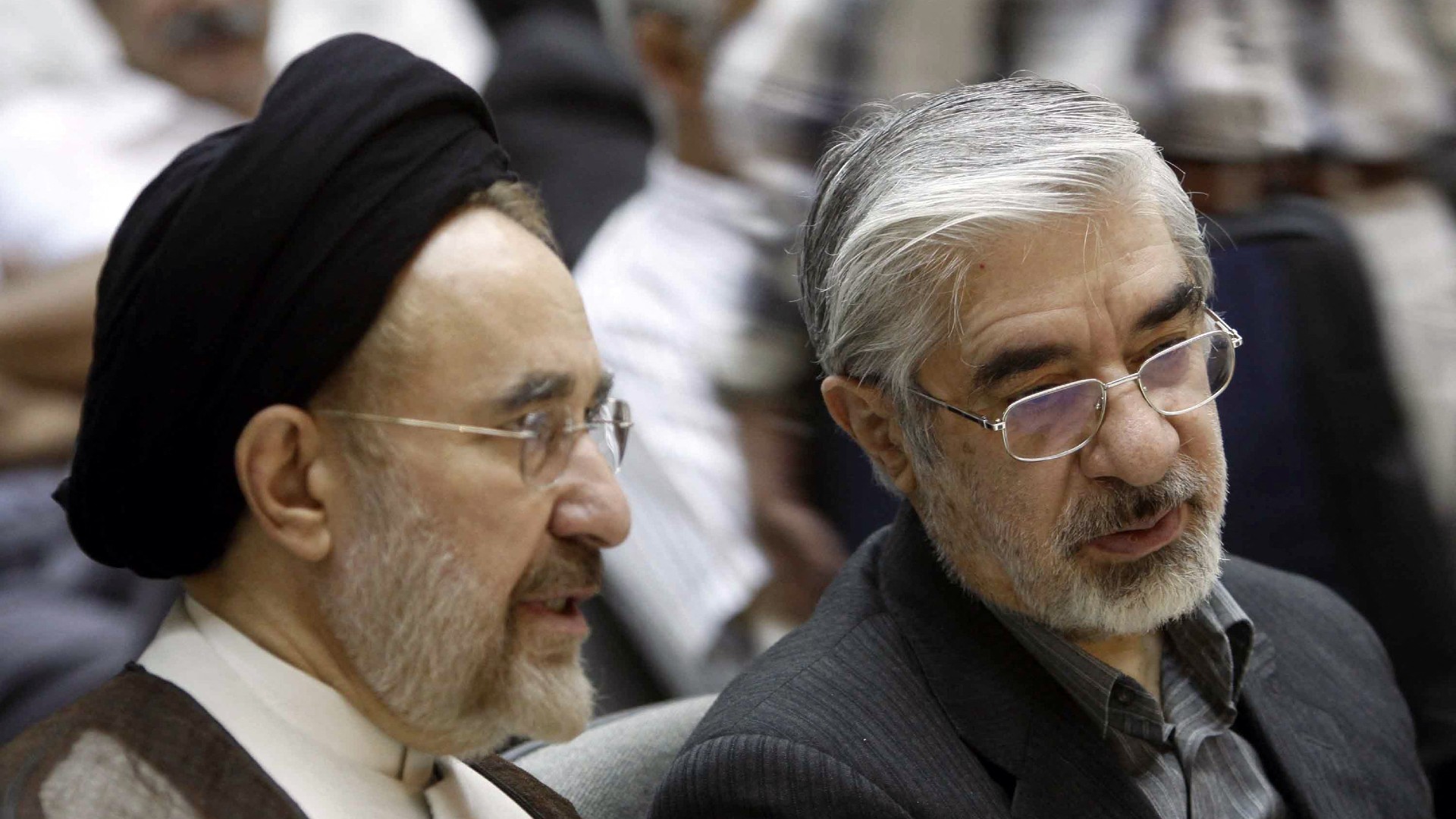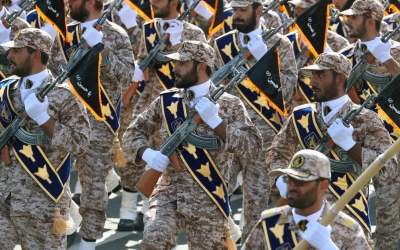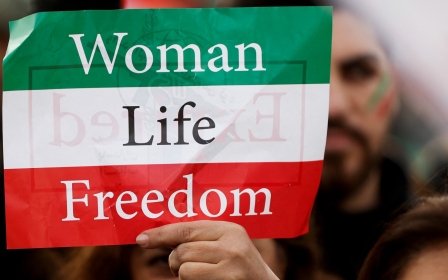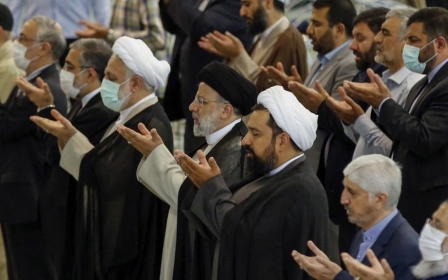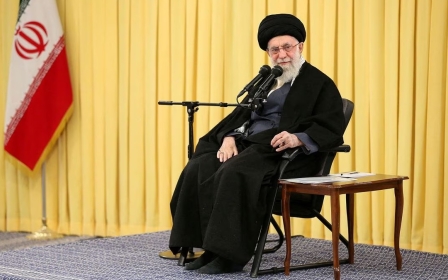Iran: A detained ex-PM issues a plan to 'save' the country and gains new prominence
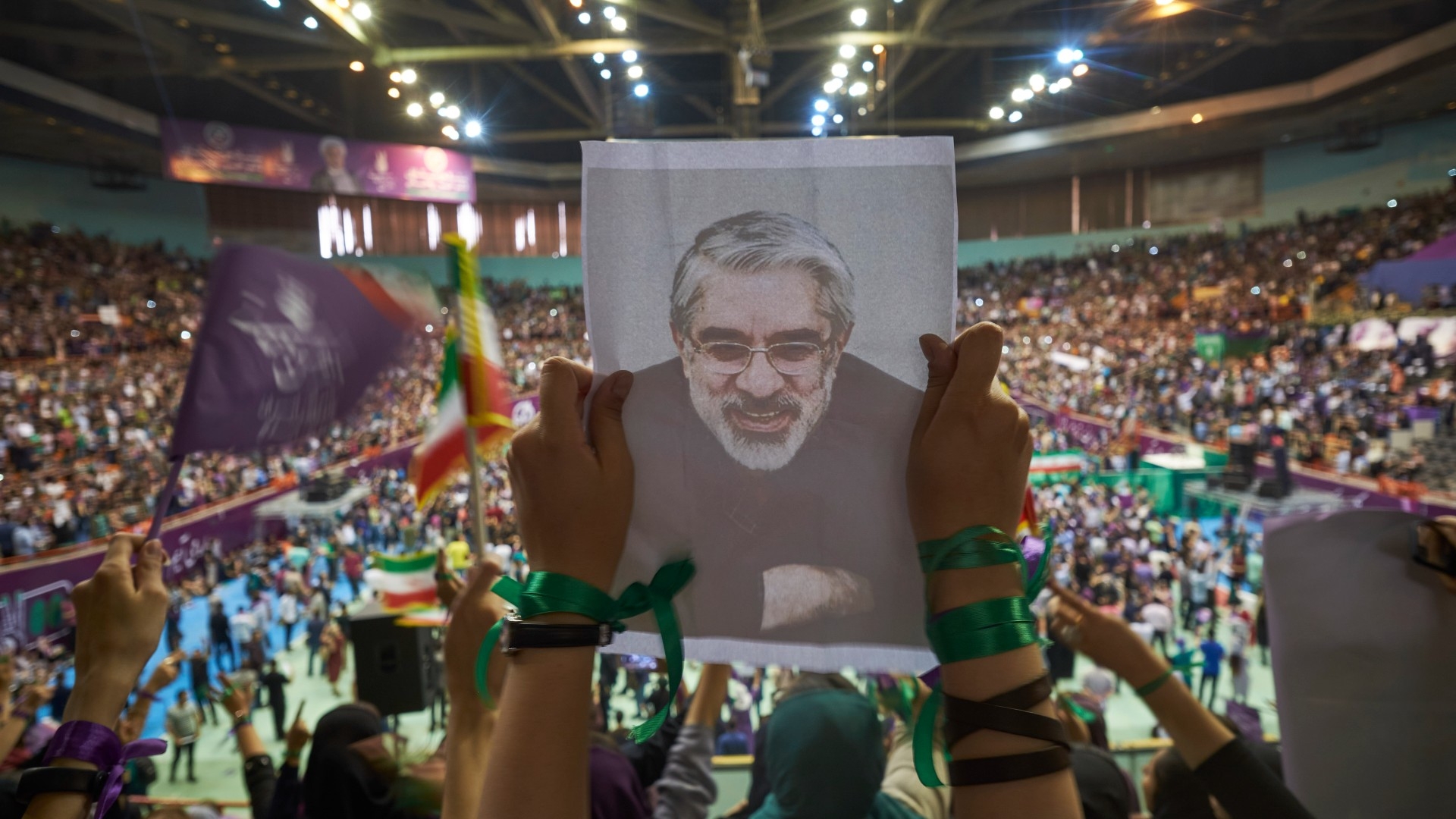
An unexpected and shocking statement from an influential former prime minister has rattled the Iranian establishment, with many seeing his call for a new constitution to "save Iran" as a proposition equivalent to regime change.
Mir-Hossein Mousavi, a leader of Iran's reformist camp who has been under house arrest for 13 years, has long maintained that his country's issues are caused by a failure to properly follow the 1979 revolutionary constitution. Now he's decided that only a complete overhaul could pull Iran out of its various crises.
For five months, major protests have torn through Iran, with the subsequent crackdown killing hundreds of people. The unrest erupted following the death in police custody of 22-year-old Mahsa Amini on 16 September after she was arrested for allegedly wearing her mandatory headscarf "improperly".
'The crisis of crises is the contradictory and unsustainable structure of the country's political system'
- Mir-Hossein Mousavi
While the demonstrations at first opposed the compulsory hijab, they gradually turned into a movement calling for the dismantling of the Islamic Republic.
Writing in the Kalame news site on 4 February, Mousavi noted that Iran faced not only an economic crisis, but ones of management and inefficiency, internal politics and foreign policy, environment, social issues, legitimacy, culture and media.
New MEE newsletter: Jerusalem Dispatch
Sign up to get the latest insights and analysis on Israel-Palestine, alongside Turkey Unpacked and other MEE newsletters
"The crisis of crises is the contradictory and unsustainable structure of the country's political system. It is this unaccountable and irresponsible power that makes the times dark for us and blocks the way to the well-being of the suffering people," wrote Mousavi, highlighting in particular the unrestrained power of Supreme Leader Ayatollah Ali Khamenei.
He then suggested a plan for "saving Iran" based on three principles:
"1. Holding a free referendum on the necessity of changing or drafting a new constitution;
"2. In case of a positive response from the people, a Constituent Assembly composed of real representatives of the nation through free and fair elections must be formed;
"3. Holding a referendum on the text approved by that Assembly in order to establish a political system based on the rule of law and in accordance with the standards of human rights and arising from the will of the people."
A turbulent history
Mousavi was prime minister for eight years in the first decade after the 1979 Islamic Revolution. He was a revolutionary figure and close to the Islamic Republic's founder Ayatollah Ruhollah Khomeini.
In fact, Khomeini seemed to favour Mousavi so much that Khamenei, who was then president, lobbied against him being named prime minister for a second term.
When Mousavi's tenure came to an end in 1989, he left power for three decades. But in 2009, following reformists' constant demands, he ran for the presidential race.
The result of the election sent shockwaves through Iran, as Mahmoud Ahmadinejad, the candidate belonging to the principalist camp, also known as the hardliners, was announced as the victor.
Reformists and Mousavi then declared they had proof the vote was rigged, and tens of thousands of people poured into the streets calling on authorities to "give us back our votes". In response, Mousavi promised his supporters, who were later known as the Green Movement, he would never retreat.
In turn, Mousavi and his wife were placed under house arrest in 2010, where they remain today.
At the time, Mousavi believed that the political system had strayed from the Islamic Republic's original vision and needed to be brought back to the right track. Today it seems he wants to go even further.
Reformist divisions
Mousavi's intervention was not welcomed by all reformists, a political strand that has struggled for prominence since the Green Movement was crushed.
Mohammad Khatami, a reformist leader and former president, pushed back against the proposal in a statement.
"There are lots of people who are upset with the situation and call for structural change, but they don't recommend regime change as it has dangers for the people and the country," wrote Khatami, adding that the reformism has reached a dead end and that people are "right to be disappointed" with it.
Instead, he suggested the establishment both fully implement the constitution and follow 15 propositions for reform.
This was backed by the Reformist Front, an umbrella organisation that includes most major reformist parties, which noted its "fear of chaos and endless violence which will, as a result, ruin the future of Iran and its children".
Yet the reformists' popular base, much of which has actively supported the Mahsa Amini protests, seems to stand behind Mousavi's position rather than Khatami.
One senior reformist activist pointed out that Khatami made proposals knowing all too well that the establishment would never carry them out. Like everyone Middle East Eye spoke to, the activist's name is being withheld for security reasons.
'I think the current of Mousavi will soon turn into a very powerful opposition and civil current inside the country with vast influence in the society'
- former conservative official
"I strongly believe that Khatami's strategy has failed, although I fully understand his concerns as I also don't want to see the country drown in chaos and violence," the activist said.
"Mir-Hossein's suggestion is much better. First of all, it is fully in line with the strategy of avoiding violence while calling for a change in a completely peaceful process. Secondly, Mir-Hossein is making clear to the reformists' base that the Islamic Republic is not reformable and the old strategy must be changed.
"This was a great move as it didn't give false hope to people about reforming the Islamic Republic anymore and once again he took a step based on people's will."
The activist believes Mousavi's intervention will boost the reformists' support and tap into the rage and discontent seen in the protest movement - a phenomenon that has posed serious questions of the establishment.
"In fact, Mir-Hossein parted ways from his old friends and I think the reformists' support base has also decided to follow the footsteps of Mir-Hossein, not Khatami, as they are frustrated with the establishment, which has no will to change itself."
A former conservative official agreed.
"I think the current of Mousavi will soon turn into a very powerful opposition and civil current inside the country with vast influence in the society. And they can even affect the decisions of the establishment positively," the former official said.
"However, I can't predict what will be at the end of the tunnel and where Mousavi's new path will lead."
Rivals for leadership
The Mahsa Amini protest movement has had no leaders in Iran, but several figures abroad have sought to portray themselves as its representatives.
Reza Pahlavi, the former crown prince of Iran, and Hamed Esmaeilion, an Iranian-Canadian activist, are among the figures who have attempted to lead the protests from outside the country.
By entering the field, Mousavi's intervention may prove to be a game-changer, as he is the only top figure inside the country that has openly put forward a plan to fundamentally change the Islamic Republic's system into a more democratic one.
"Mir-Hossein shocked the foreign-based regime-change activists who are also mostly in disagreement with each other. None of them has the background and experience of Mousavi in executive jobs, [nor in] leading a great movement as he did in 2009," an Iran-based political journalist told MEE.
"Mir-Hossein has remained committed to his promise to people and his supporters and has paid a steep price for being with the people, that's why he has been under house arrest for more than 13 years."
The journalist added that Mousavi has won people's respect for enduring years of detention in defence of his principles.
"My question is, does Pahlavi or Esmaeilion have the courage to come to Iran and pay a price or are they only a fighter sitting in their comfort zones in the US and Canada?" the journalist asked.
"The foreign-based regime change activists are seemingly worried that Mir-Hossein's initiative would steal the scene from them, and that has made them have a get-together recently in Washington, while offering nothing to people except a bunch of useless slogans."
Middle East Eye delivers independent and unrivalled coverage and analysis of the Middle East, North Africa and beyond. To learn more about republishing this content and the associated fees, please fill out this form. More about MEE can be found here.


